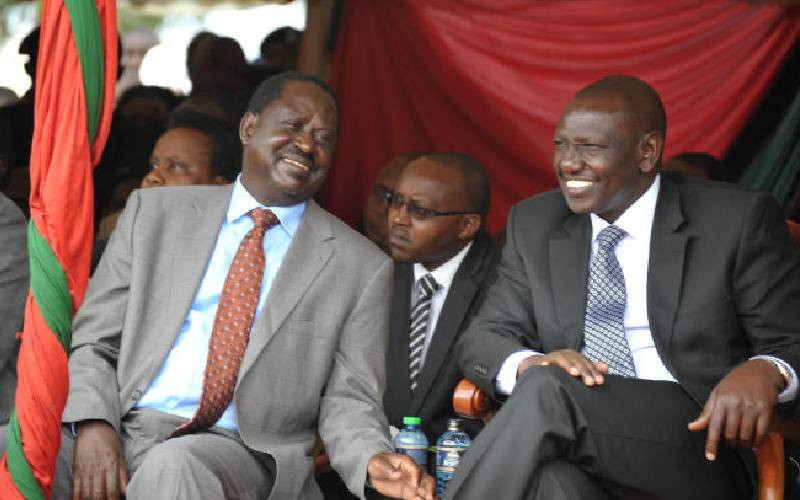×
The Standard e-Paper
Fearless, Trusted News

Separated by 22 years of age, William Ruto and Raila Odinga have, nonetheless, engaged in epic political duels that belie the age difference. Ordinarily, you would expect the searing contests between the two to happen between age-based peers.
It is uncommon for two people from social backgrounds that are worlds apart, and separated by two decades, and more, to be political rivals. Yet, that is exactly what these two colourful politicians are - fierce rivals.